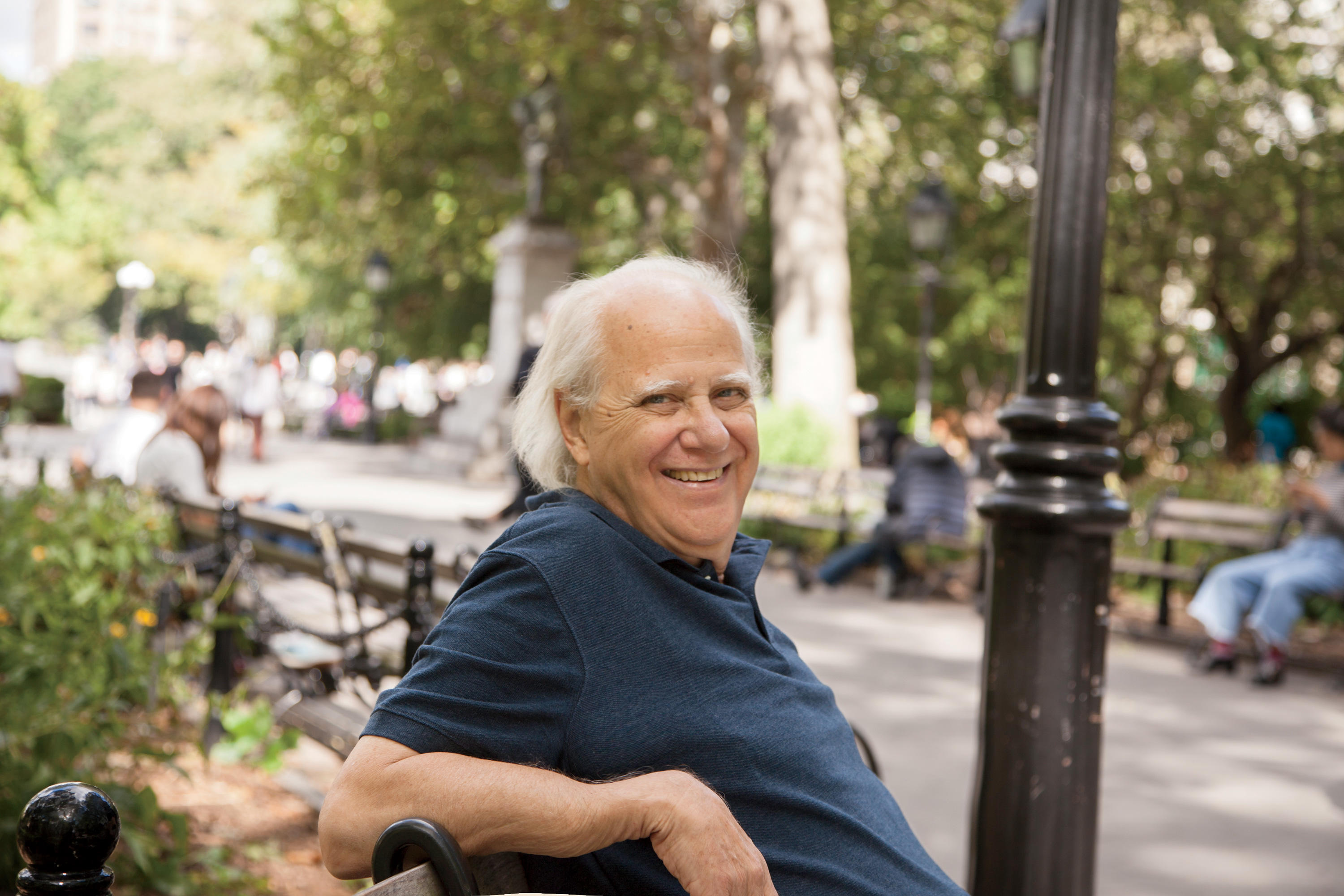For Erich Goode ’66GSAS, Washington Square Park in Greenwich Village, with its polymorphous crowds and carnival spirit, is the ideal petri dish for his abiding fascination: social deviance and control. The seventy-eight-year-old sociologist can often be found there, a Mead notebook in his hand, observing the human pageant.
“In a setting like this, what do people consider untoward behavior?” Goode said recently from a bench on the west side of the fountain. “Here we have a very tolerant atmosphere, where someone can walk past in a clown costume and no one turns around, or an unkempt, barefoot man can preach incoherently about God and apples, and people just smile and nod. But at what point does behavior become too eccentric? Where do people draw the line? How do they judge, and what do they do?” Goode gestured at the scene. “How does this” — the pigeon feeders, the pot dealers, the chess sharks, the acrobats, the singers, the drummers, the cops — “all hang together?”
To Goode’s knowledge (and to Google’s), no one has made such a study of the 9.75-acre rectangle that on some days feels like the center of the world. Goode has taken on that task, one for which he is especially well suited. He moved to the Village in the mid-1960s and promptly got into fisticuffs with a local tough who considered him a beatnik interloper. After earning his PhD from Columbia, he began perambulating the neighborhood in search of a subject. “I’d ask myself, ‘What’s the most interesting thing around me?’ The answer was drug use.”
Goode began interviewing people, and his study led to a book called The Marijuana Smokers, published in 1971. That led to an invitation from Knopf to write a textbook on drug use. That book, Drugs in American Society, is now in its ninth edition.
Goode left the city in the 1970s and taught at several East Coast universities. He retired from Stony Brook University on Long Island in 2000 and moved back to New York in 2007. That December, the city began a six-year landscaping project in Washington Square Park, foiling Goode’s wish to study the whole organism. But with the renovations complete, the park’s capricious life now lies open to Goode’s trained eye. He visits three times a week for two or three hours, and has interviewed sixty people on a number of behaviors and activities: feeding squirrels, playing music, ranting, smoking, drinking, performing, sleeping. “People’s evaluations of what is inappropriate tend to center on responsibility toward others — whether a behavior will hurt, offend, or intrude on others’ rights,” Goode said.
The style of law enforcement in the park reflects this ethos. “The police ignore a lot of rule-breaking. Drug dealers cruise right here. Drug dealing is for the most part tolerated or semi-tolerated.”
Then there is the category of behavior that Goode calls “performative deviance” — people with some shtick or obsession, often in flamboyant garb, who are “letting fly a certain aspect of their personality in a place of maximum tolerance.” Some of these people have psychiatric problems, while others are experimenting with their eccentricity.
“What’s interesting to me is that all kinds of people feel welcome here,” Goode said, as a man dressed in red walked past singing “Row, Row, Row Your Boat” and ringing a gold school bell. “No one feels frozen out. I love the idea of cultural, racial, and sexual variety and tolerance.” He closed his notebook. “Tolerance is my lodestone.”



